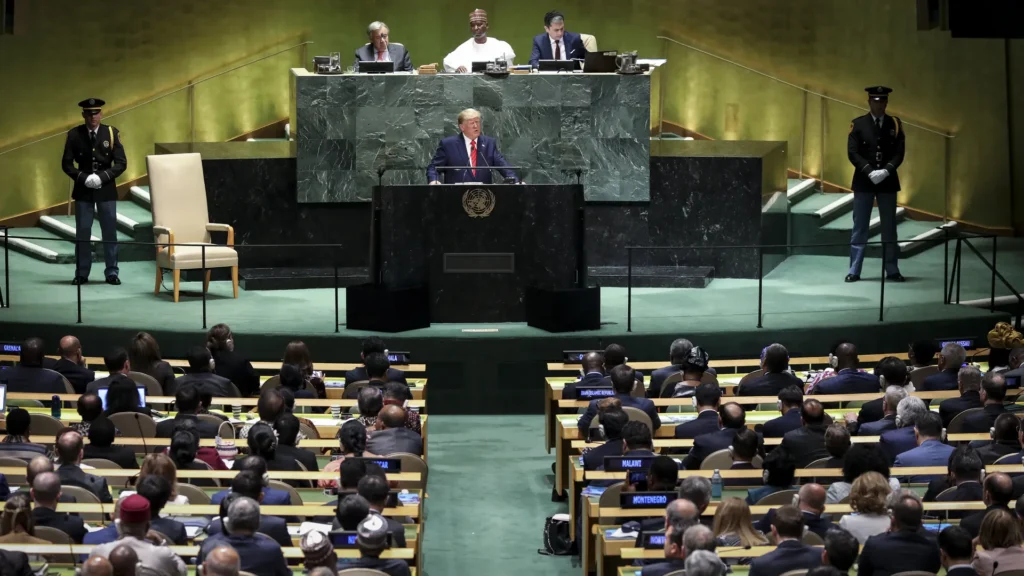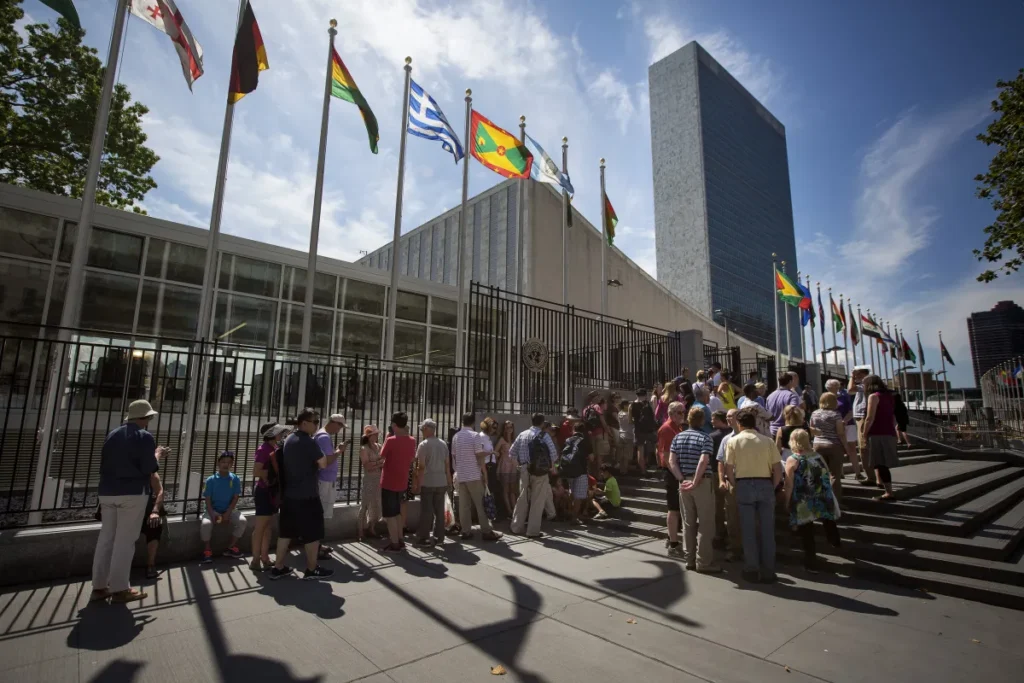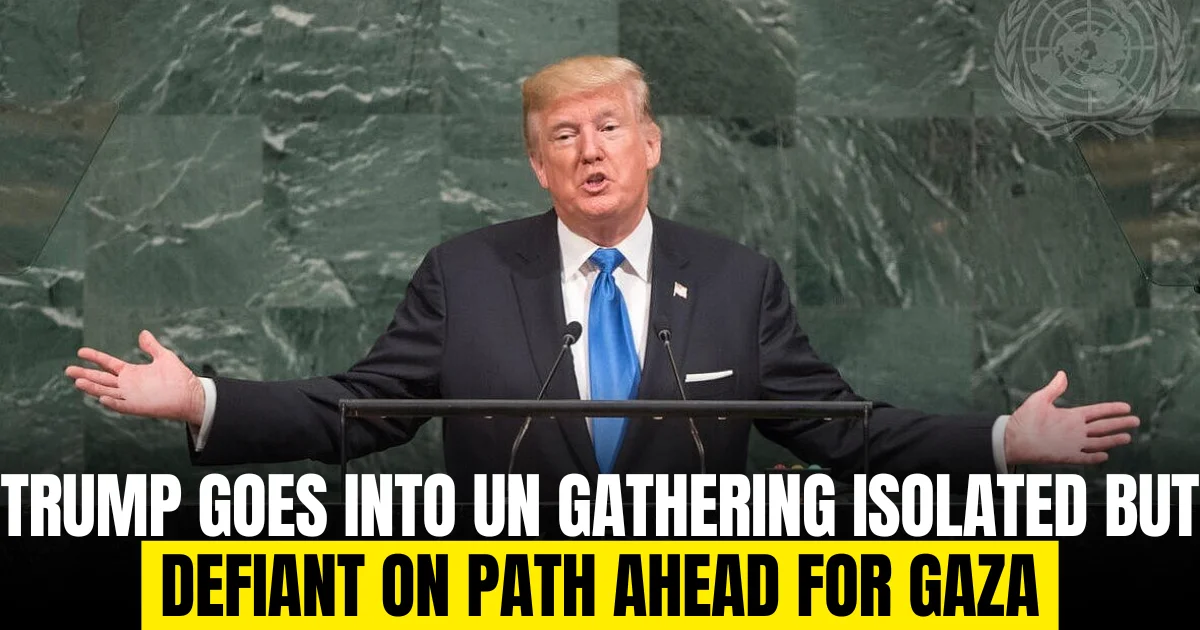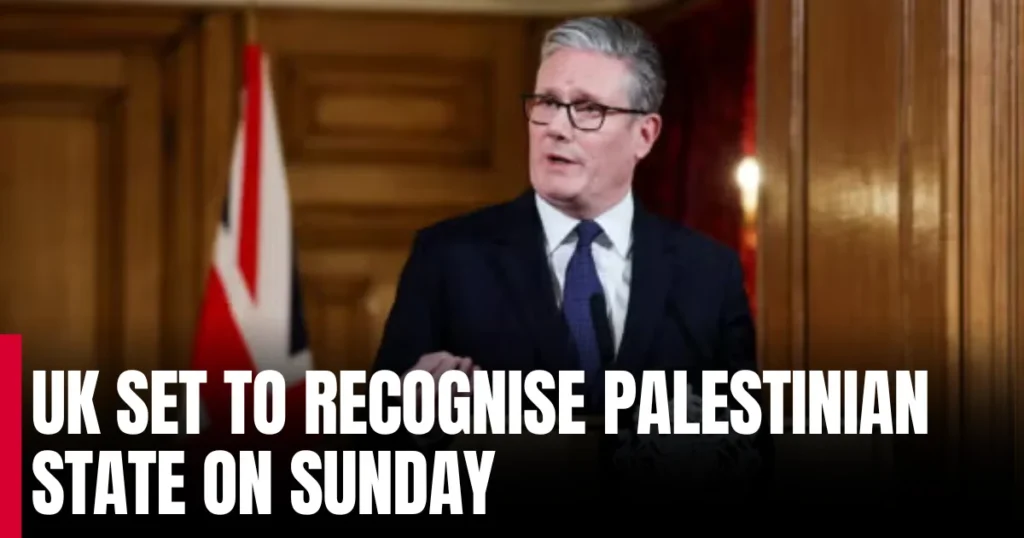Trump enters the UN General Assembly isolated on Gaza, opposing global calls for a Palestinian state. Here’s what it means for US foreign policy.
Table of Contents
Trump Goes Into UN Gathering Isolated but Defiant on Path Ahead for Gaza
When President Donald Trump delivers his first address of his second term at the United Nations General Assembly, he will do so largely isolated from the global community. Over 142 of the 193 UN member states back a two-state solution to the conflict in Gaza, while the US stands almost alone in rejecting Palestinian statehood and offering unwavering support to Israel.
US Isolation at the UN Over Gaza

The deepening conflict in Gaza has entered its second year, with mounting casualties and international outrage. While countries such as France, Saudi Arabia, the United Kingdom, Canada, Australia, and Portugal have moved to recognize a Palestinian state, the US has doubled down on support for Prime Minister Benjamin Netanyahu’s government.
On Monday, France and Saudi Arabia co-hosted a two-state solution conference with the backing of a majority of UN members. The US boycotted the meeting and was one of just ten countries to oppose the resolution endorsing it.
President Emmanuel Macron announced that France will formally recognize a Palestinian state — a symbolic but powerful step echoed by other nations during the week-long gathering.
Trump Administration’s Position

Despite global momentum, Trump has made clear he will not shift. Standing alongside the British Prime Minister, he dismissed the UK’s decision to recognize Palestine as “one of our few disagreements.”
Rather than condemning talk of West Bank annexation, US officials argue that unilateral recognition of a Palestinian state only emboldens Hamas and undermines negotiations. Secretary of State Marco Rubio said such moves are “counterproductive” and reduce chances of peace.
Blocking Palestinian Leadership at the UN
In a rare diplomatic step, the Trump administration denied visas to Palestinian Authority (PA) President Mahmoud Abbas and other PA and PLO officials, preventing them from attending the UN assembly in person. Abbas will instead participate virtually.
Former US Ambassador Jake Walles criticized the move, warning that sidelining the PA leaves Hamas as the only alternative. “If you only talk to one side, you’re not going to make peace,” he said.
No US Counterproposal for Peace

While France and others push for a roadmap based on a two-state solution, the US has offered no counterproposal. Instead, Trump and his team have backed Israel’s continued military campaign, even as global outrage grows over operations in Gaza City.
On Thursday, the US vetoed a UN Security Council resolution calling for an immediate ceasefire — a measure supported by every other member of the Council. The US insisted the text failed to condemn Hamas or affirm Israel’s right to self-defense.
What’s Next for Gaza and the US Role
Israeli leaders, including Netanyahu, have openly rejected the idea of a Palestinian state. With growing international recognition of Palestine and rising anger over civilian deaths, the US faces an increasingly lonely position at the UN.
Trump, however, appears determined to stay the course. “At some point, Israel — it’s their war; they’re going to get to decide how they want to proceed,” Rubio said, signaling no change in Washington’s stance.
FAQs
Q1. Why is Trump isolated at the UN over Gaza?
Because the US continues to oppose recognizing a Palestinian state while over 140 countries and key allies support it.
Q2. What is France’s role in the Gaza peace process?
France co-hosted a two-state solution conference at the UN and formally recognized a Palestinian state during the gathering.
Q3. Why did the US block visas for Palestinian leaders?
The Trump administration denied visas to Mahmoud Abbas and other PA officials, preventing their participation in the UN Assembly.
Q4. Did the US propose an alternative to the two-state solution?
No, the US has not presented a counterproposal and instead maintains support for Israel’s government.
Q5. What was the US position on the UN ceasefire resolution?
The US vetoed the Security Council resolution calling for a ceasefire in Gaza, while all 14 other members voted in favor.
Conclusion
Trump’s approach to the Gaza conflict at the UN highlights America’s increasing isolation on the global stage. While dozens of nations — including close allies — move toward recognizing a Palestinian state, the US continues to stand by Israel, veto international calls for ceasefire, and block Palestinian leaders from participating.
As Trump delivers his UN address, the world will be watching closely to see whether his defiant stance strengthens US-Israel ties or further deepens America’s divide with the international community.
👉 Do you think US isolation at the UN will impact its global influence? Share your views in the comments.

